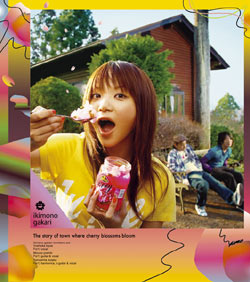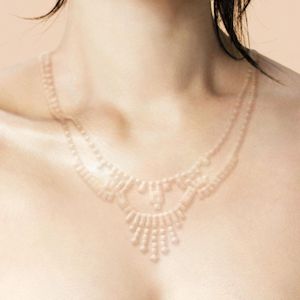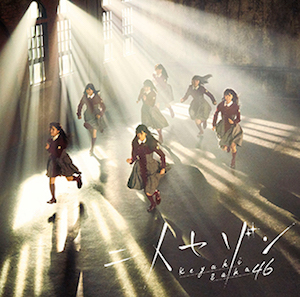
Namie Amuro is a retired Japanese singer. She rose to prominence as a teen idol, and transitioned into a leading pop artist due to her versatility across music styles and visual presentation. Due to her career reinventions and longevity, she is known as an icon across Japan and Asia. She has been referred to as the "Queen of Japanese Pop", and her influence domestically has drawn equivalent comparisons to artists such as Janet Jackson and Madonna in Western pop culture.

Deep River is the fourth studio album by Japanese-American singer Hikaru Utada. It was released via Toshiba EMI on June 19, 2002. The title of the album, as well as its title track, was inspired by the novel Deep River by Shusaku Endo. Utada wrote and co-produced the majority of the record, and unlike her previous album Distance (2001), she worked primarily with Japanese collaborator Akira Miyake and her father Teruzane Utada. Musically, Deep River is widely noted by fans and critics as the transition state from Utada's earlier style, R&B, to ethereal pop.

A Song for ×× is the debut studio album by Japanese singer Ayumi Hamasaki, released on New Year's Day 1999 by Avex Trax. It was entirely written by Hamasaki herself, while the production was handled by Japanese musician Max Matsuura. Primarily a pop rock album, it features musical composition and arrangements by Yasuhiko Hoshino, Mitsuru Igarashi of Every Little Thing fame, and others. The concept of A Song for ××, along with its lyrical content, revolve around the flow of Hamasaki's own time from childhood to the present to the future.

Rainbow is the fifth studio album by Japanese recording artist Ayumi Hamasaki, released on 18 December 2002 by Avex Trax. Production of Rainbow had commenced after the release of Hamasaki's fourth studio album I Am... that January; All lyrics were written by Hamasaki, and Japanese producer Max Matsuura returned to produce the album. The album was Hamasaki's first to feature conversational English lyrics, where in her previous works she had only used single words.

Yui, stylized as YUI or yui, is a Japanese singer-songwriter and multi-instrumentalist. In her solo career, she sold more than 5 million physical copies in Japan. She is popular in Japan and in surrounding countries, ranking number one in 2011 Count Down TV "Dearest Female Artist" and Music Station "Artist You Most Want to Marry" polls, as well as Radio Television Hong Kong's "Most Popular Japanese Artist".

(Miss)understood is the seventh studio album by Japanese singer-songwriter Ayumi Hamasaki. It was released on New Year's Day 2006, by Avex Trax. Hamasaki acted as the album's sole lyricist, as she had on all of her preceding albums. (Miss)understood marked new musical directions for Hamasaki: she explored new influences such as funk and used gospel choruses in some of the songs, foreign to her previous works. This was the result of her having heard compositions by Geo from the German-based pop music project Sweetbox and asking him for his works. Subsequently, Hamasaki rewrote the lyrics entirely to fit (Miss)understood.

Ultra Blue is the sixth album by Japanese–American singer Hikaru Utada, released on June 14, 2006, by EMI Music Japan. It is the first original Japanese language album under Hikaru Utada's name in four years since her third album Deep River (2002). Ultra Blue contains thirteen songs, including six singles released between 2003 and 2006. While the arrangements for her album Deep River were done collaboratively, all but one of the songs on Ultra Blue were written, composed, and arranged solely by Utada, who also did the programming herself. In this album, the R&B elements that have been present since her debut are further diminished, and the majority of the songs have an electronic flavor with an emphasis on synth sounds.

"Baby Don't Cry" is the 32nd single by Japanese recording artist Namie Amuro. It was released as the second single from her eighth studio album, Play (2007). It was written, composed, arranged, and produced by Japanese musician Naoaki Yamato, under the alias Nao'ymt. The single also included the B-side track "Nobody," a reworked version of her 2005 song "White Light." "Baby Don't Cry" premiered on January 24, 2007, as the third single from the album in Japan. It was also released worldwide on February 21, 2007, through Avex Inc. Musically, "Baby Don't Cry" is an mid-tempo sunshine pop song influenced by R&B music.
The solo discography of Japanese musician Yui consists of five studio albums, three compilation albums, twenty-one singles and five video albums. These were released on independent label Leaflet Records in 2004, followed by Sony Music Entertainment Japan sub-label Gr8! Records in 2005, Sony Records between 2005 and 2006, Sony sub-label Studioseven Recordings between 2007 and 2010, before returning to Gr8! Records in 2010.

Play is the eighth studio album by Japanese recording artist Namie Amuro. It was released on June 27, 2007, by Avex Trax and was made available in both physical and digital formats. Following the success of her previous album, Queen of Hip-Pop (2005), Amuro enlisted long-time collaborators Nao'ymt and T. Kura to produce the album. Play, like its predecessor, is an urban contemporary record with elements of pop music, rock and dance-pop. Lyrically, the record explores themes of love, frustration, and relationships.

Best Fiction is the third greatest hits album by Japanese singer Namie Amuro. It was released on July 30, 2008, by Avex Trax and features seventeen singles released between 2002-2008, which included five new songs, three of which were released as a triple A-side single called "60s 70s 80s." Furthermore, the album tracks "Do Me More" and "Sexy Girl" were released as digital singles.

Sakura Saku Machi Monogatari, is the debut album of Japanese pop music trio Ikimono-gakari. It was released in Japan on March 7, 2007 under the label Epic Records Japan. All of the album's songs were written and composed by members Yoshiki Mizuno and Hotaka Yamashita. Sakura Saku Machi Monogatari is primarily a pop rock record with influences of folk pop and depicts love and scenes in all four seasons.

The discography of Japanese musician Angela Aki consists of seven studio albums, two compilation albums, one extended play, thirteen singles, and five video albums. Her debut album, These Words, was released independently in the United States in early 2000 and was sung entirely in English. After returning to Japan in 2003, Aki followed this with a Japanese-language extended play, One, released under Virgo Music in 2005.

"Ariamaru Tomi" was Japanese singer Shiina Ringo's first single as a solo artist in five years. It was released on May 27, 2009, the same day her debut single was released eleven years earlier. The distributor is EMI Music Japan / Virgin Music.

Kana Nishino is a Japanese singer and songwriter signed with SME Records' Newcome Inc. She debuted on February 20, 2008 with the single "I."

"Don't Cry Anymore" is Japanese singer-songwriter miwa's debut major label single, released on March 3, 2010. It was used as the Nana Eikura starring drama Nakanai to Kimeta Hi's theme song. It was certified gold by the RIAJ for full-length cellphone downloads.

To Love is the second studio album by Japanese recording artist Kana Nishino. It was released on June 23, 2010, by SME Records. Beginning sometime in 2009, the album's production was handled by several music producers, such as Jeff Miyahara, Giorgio Cancemi, Daniel Sherman, Mats Lie Skåre, ViVi, Andreas Levander, among others. It also features a guest appearance from Japanese hip-hop and reggae musician Minmi. Nishino contributed towards the album as the executive songwriter. To Love is primarily a J-pop album with numerous elements of dance-pop, pop rock, R&B, electropop and adult contemporary.
Flower Flower is a Japanese rock band that was formed in 2013 by Japanese singer-songwriter Yui. The group debuted with the single "Tsuki" (2013).

"Futari Saison" is the third single by the Japanese girl idol group Keyakizaka46. It was released in Japan on 30 November 2016 on the label Sony Records.

"Nobody's Fault" is the first single from Japanese idol group Sakurazaka46 after their renaming and repositioning from Keyakizaka46. It was released on December 9, 2020. The title track features Hikaru Morita as center. The single debuted atop the Oricon Singles Chart and the Billboard Japan Hot 100, selling over 408,000 copies in Japan in its first week of release.

















